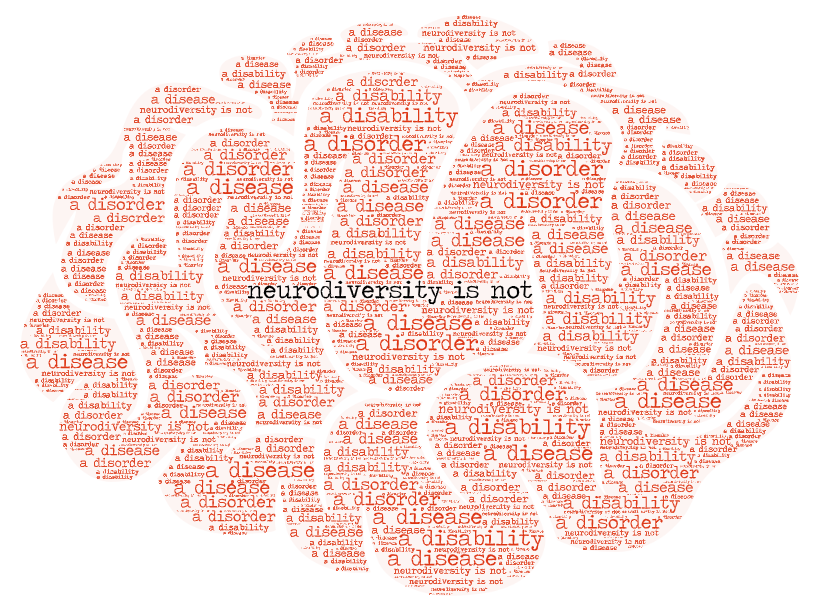Opinion: We need to talk about neurodivergence
December 15, 2021
When I was younger, I had a lot of trouble with math. As children around me moved at a seemingly impossible speed from unit to unit, I was stuck in the dust. The people around me came to the conclusion that I just needed to try a little bit harder, maybe even more than other kids. That if I simply “pushed through” and put in more effort, I would progress at the same speed as my peers in math class.
In theory, this was a good plan. However, it didn’t work. For years, people told me to “just learn my times tables,” to “just listen in class,” to “just try and understand.” The problem is that I was trying incredibly hard, yet reaping no rewards or results. I started to hate math with a passion and envy my peers who could finish everything so easily. It was almost maddening because every time I tried to reach out and say “something is fundamentally wrong,” my math teachers, my parents and most of the adults in my life would tell me that I just wasn’t putting my all into it.
At some point, I essentially gave up. I accepted the idea that I could never be good at math like the others around me. Around eighth-grade, my therapist recommended that I get tested for a learning disorder. When we went to see a specialist, I was diagnosed with dyscalculia, a disorder that impairs one’s ability to do basic calculations and tell the difference between numbers.
The diagnosis didn’t mean much to the people around me. My parents didn’t really think it told them anything they didn’t already know, but for me, it was revolutionary. For the first time, it was confirmed that I wasn’t just being lazy; it’s not that I wasn’t good enough; it’s not that there was something wrong with me for not being able to keep up; my brain was just built differently.
Most importantly, in the report made by my doctor, I noticed the term “neurodivergent.” It’s not that I had never heard the term before, but it was the first time I realized that it applied to me specifically. I went online and began to research neurodivergence and from there, I found something amazing.
There are many neurodivergent conditions and dyscalculia is just one of them. There are also things like autism spectrum disorder, ADHD, dyslexia, dysgraphia, Tourettes, dyspraxia and more. What I found when I went looking was a vibrant community full of people just like me: people who spent their lives feeling like they were broken, only to then discover that they were just different.
Exceptional Individuals is a program headed by neurodivergent and neurotypical people aimed towards helping neurodivergent individuals in the workplace and raising awareness. They define neurodiversity as “the range of differences in individual brain function and behavioral traits regarded as part of normal variation in the human population.”
The group further believes that neurodiversity is something that we should value, as it’s part of what makes individuals unique. According to their website, “a condition such as dyslexia is a part of who the person is and to take away the dyslexia is to take away from the person.”
Now, that’s not to say that all people accept the ideas of neurodivergence. Some people with conditions that fall under the neurodivergent umbrella term don’t identify with the ideas presented along with the term. There is some controversy over neurodivergence as a concept and it’s still being discussed within many circles. But one thing I want to clarify is that I don’t think that the decisions of whether neurodivergence is an acceptable or useful term should be made by people who aren’t neurodivergent, known as neurotypical people.
I believe that it’s not the place of outside viewers to determine what a neurodivergent person is or is not. After so long being pushed into the background with our opinions sidelined, after being ignored and being denied a seat at the table, after so long being defined as a disease, I believe that it’s important that neurodivergent people have a right to self-determination. Neurodivergence is a somewhat controversial term, but the decisions around it should be discussed by neurodivergent people.
Often, neurodivergent people are pushed to the side in discussions about our autonomy and treatment. Neurodiversity was a term coined by a woman with autism spectrum disorder looking to define her experience and life with words that didn’t paint her very existence as a disorder. There is so much misinformation and misunderstanding regarding neurodivergent people, and part of dispelling that stigma is through learning about what neurodivergence really means and listening to neurodivergent voices when they talk about their experiences and needs.








Paul Blank • Jan 7, 2022 at 9:22 am
Sadie – this is a great article; I learned so much.